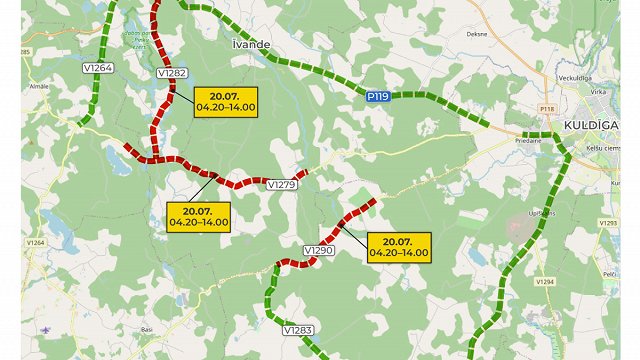Māris Jonovs, a representative of the Drošās ielas (Secure Streets) Society, is one of the activists who, in his spare time, armed with a phone camera, supervises the behaviour of drivers on the streets of Riga. The filmed and photographed offenses, are sent to the police. But the way forward is usually slow.
“This week I received letters from the Information Center of the Ministry of Interior that administrative infringement proceedings have been initiated on cases sent by the Society in April, May. It's almost a year. More than half a year,” said Māris Jonovs. “But I guess the most demotivating is that they refuse a case because it hasn't been measured by a certified measuring device.”
The Society monitors not only the streets but also the social networks, where profiles of various reckless drivers have grown. These users publish videos on the Internet themselves, where they blatantly violate the rules, exceed speed, perform aggressive driving, and are proud of it. Activists also inform the police, but here the usual answer is:
“In the materials received, it is not possible to find out the time and place of the event, as well as a specific person who allegedly violates the prescribed speed limits. It has also been determined that the speed violation has not been recorded by an official of the State Police with technical means intended for this purpose. In the light of the above, the absence of evidence makes no grounds for initiating an administrative infringement process."
“And again it all ends with the fact that what we see, which is obvious to everyone, is not to be used as evidence of things,” stresses Maris Jonovs, head of the Secure Street Society.
The police admit that video material received is not always enough to start a case. In particular, when it comes to speeding, which is recorded in accordance with the law only by technical means certified by the State Police.
Sabīne Irbeniece-Česle, Head of the Office for the Administrative Violations of the State Police, explains: “If we have a video file, for example, with a filmed display of the speedometer, we see that the permitted speed is likely to be exceeded, but it cannot serve as a basis for a person to be held accountable.”
The police said it is, as far as possible, trying to communicate with people who on social networks are proud of the scenes of aggressive driving and, with preventive warnings, encourage them not to publish content that can show a bad example to others, threaten random passers and also the riders themselves.



























